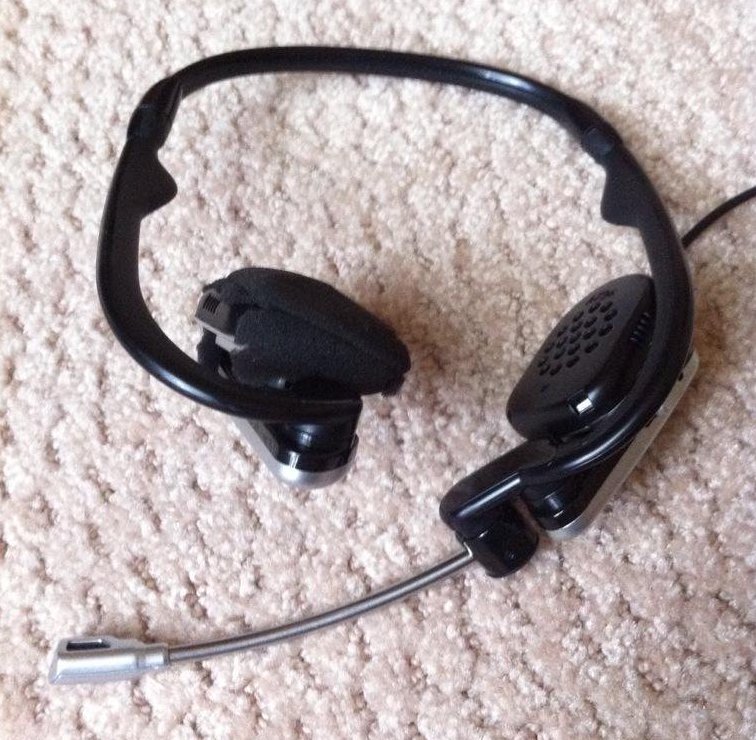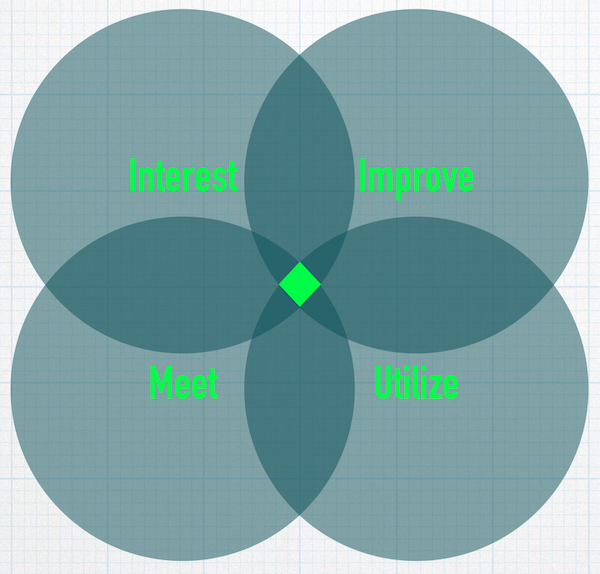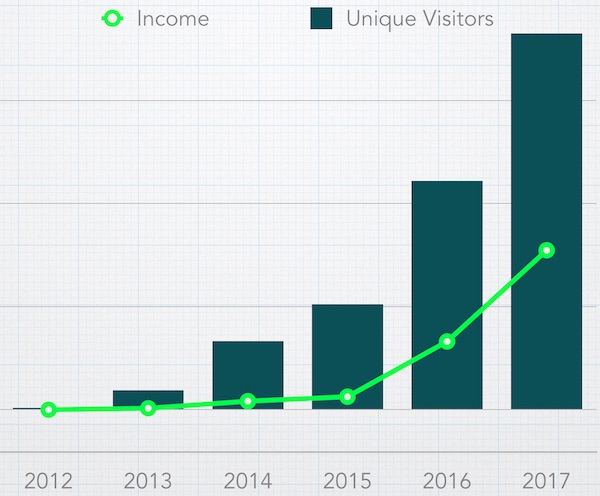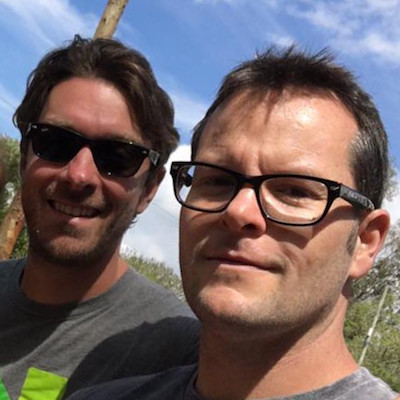Why Everyone Should Have Their Own Business (and How to Guarantee Success)
It was my 30th birthday and I was having a meltdown.
Even though I was surrounded by friends at a beautiful ski resort in Vermont, turning 30 hit me hard and I was bringing the whole party down with my self pity.
“I’ve done nothing with my life!”
“I haven’t accomplished anything I thought I’d accomplish and now I’m old!”
My girlfriend (now wife) took those statements personally and got offended, which made the atmosphere even worse.
It was embarrassing and my friends still make fun of me about it today (as they should).

Birthday fun before the meltdown
The reason I was so upset was because I had all these good ideas in my 20s but I created absolutely nothing.
The Wrong Way to Do ItIt’s not because I didn’t try though. Here’s how it went in my 20s…
I would have an idea that I’d get really excited about.
I’d start doing a lot of research, I’d maybe register a new domain, and I’d start planning how everything would go. And when I say everything, I mean everything.
I’d worry about things that hadn’t even happened yet (and were very unlikely to happen) and before long, I’d be overwhelmed and I’d put that idea on the shelf with all the rest of my good ideas.
Luckily, a new exciting idea would take its place and I’d start the cycle all over again.
That cycle made me feel like I was doing something but I realized on that cold night in Vermont, it all actually amounted to nothing.
Just StartThankfully, this story has a happy ending.
The Mad Fientist only exists because of that night.
I turned 30 in January of 2012 and I launched the Mad Fientist in February.
I had no idea what I was doing but I launched anyway. I didn’t know exactly what I was going to write about but I launched anyway.
I had never interviewed anyone before but I started a podcast anyway. I didn’t even have a microphone so I had to borrow a crappy headset (like the ones telemarketers wear) from a colleague.

All the podcasting equipment I had for my first 10+ episodes
I didn’t feel ready but I started anyway and it made all the difference.
Important Lesson #1: Start now and figure out the details later.
Good Ideas Come from ActionWhen I started the Mad Fientist, I thought I would write about investing. I planned to do a bunch of research, develop innovative investing strategies, and write all about them.
Once I started researching, however, I realized that index investing has the highest likelihood of success (with the lowest costs) so that screwed up my plan to come up with interesting and unique investing methods!
Since I still wanted something interesting to write about and wanted to speed up my journey to FI, I was forced to start looking into other ways to optimize.
And that’s how I ended up writing about tax-avoidance strategies for early retirees, which is what ended up making my site popular.
Had I waited for a eureka moment before starting, it would have never come. It was only the process of researching and writing about other things that lead me to an interesting topic that nobody had written about before.
Important Lesson #2: Your best ideas will come from the work you do (not from magical bathtub inspiration). It’s much easier to improve on existing ideas and make subtle shifts in direction than come up with the perfect idea out of thin air.
Why Everyone Should Have a BusinessThese are important lessons but why should you care? Maybe you don’t have a business and haven’t thought of starting one?
I’m here to say that starting a business could be the best thing you do on your path to financial independence and it could be the thing that impacts your happiness most after early retirement.
Here’s why…
Fills the VoidPeople who achieve financial independence and retire early are usually motivated, ambitious, hard-working people.
They’re like a car going 75 miles per hour down the freeway but when they find out about FI, they speed up to 100 mph to get to their FI destination as soon as possible.
What happens when a car going 100 miles per hour immediately drops down to 0 mph though?
You don’t have to be a physicist to know that it’s not good.
And yet that’s what I often see when talking to people about pursuing FI.
They are consumed by their goal, they’re racing there at 100mph, and yet they’re not thinking about what happens when they get there (or what they’re going to do after).
I did exactly the same thing. And as I described in this post, the only thing that kept me from freaking out after leaving my job was the fact that I had an existing business to fill the void.
What About HobbiesYou may be thinking to yourself, “Whatever, Mad Fientist…I have a lot of hobbies and there’s tons of stuff I plan to do after I retire!”
Hobbies are good, of course. But a business is different because it provides additional pressure that makes you do what you say you’re going to do.
For example, I thought I would cook a lot of interesting meals after leaving my job. I have all day to buy fresh ingredients and research new recipes so why wouldn’t I start my new cooking hobby like I’ve always wanted to?
Well, it’s been over two years since I left my job and I still haven’t done it.
Why?
Because the only external motivation to do it is my wife saying, “What happened to your plan to cook me delicious meals all the time?!” Yes, that’s motivating but it usually just results in me cooking something easy that I already know how to cook.
The Mad Fientist (my business), however, is different.
I still publish at roughly the same frequency as I always have and that’s because it’s a real business and if I don’t publish for a while, I get a bunch of emails asking when the next one is going to come out.
So a business can be just like a hobby but one that you take more seriously (and therefore hopefully get more fulfillment from).
Which brings us to the most important part of starting a business and the part that if you get it right, can guarantee your success…
How to Pick the Right BusinessThe first step to picking the right business is to completely remove money from the equation.
Seriously.
If you’re on the path to FI, you already make enough money. And if you’re FI, you already have enough money.
The primary purpose of this business is not earning money (although it likely will)…it’s for increasing your happiness.
Side Note: If you remove money from the business equation, it will put you in a different league from everyone else and can drastically improve your odds of success.
For example, if the Mad Fientist business was about maximizing profit, do you think I would have removed ads from my website? Would I choose to keep my podcast commercial-free? Hell no!
But I do do those things and I believe it’s allowed me to build a closer relationship with my readers/listeners, which has helped me grow to where I am today.
Not focusing on money will give you a unique advantage over other businesses in your space and will help you stand out.
So if you don’t focus on the money, what should you focus on instead?

What to Think About When Choosing a Business to Start
Interest – What are you most interested in or excited about? Improve – What do you want to learn more about or get better at? Meet – Who do you want to meet and hang out with? Utilize – What skills do you like utilizing and want to improve on?
Let’s use the Mad Fientist as an example again.
Back in 2012, I was aggressively pursuing FI and was ridiculously excited about it so box #1 was ticked.
In order to get to FI quicker, I wanted to learn more about investing and I wanted to figure out new ways to optimize my finances so box #2 was ticked.
I also wanted to be able to talk to people who had already achieved FI so that I could ask them questions. Box #3 was ticked.
As far as my existing skills were concerned, I was better at math and money stuff than most people, I was a professional software developer so I had web development skills, and I also had above-average Excel skills.
Was I a great writer? No. Had I ever interviewed anyone before? No.
That didn’t matter though because in those early days, I just focused on what I was good at and used that to differentiate myself.
For example, I immediately released a FI Spreadsheet that I had built to track my own numbers. I also created a custom calculator to supplement the first post I wrote. I then started using my math and analytical skills to come up with optimization strategies specifically for early retirees.
I used skills I had (e.g. web development, math, etc.) to compensate for skills I didn’t feel I had yet (e.g. writing, interviewing, etc.).
I didn’t need to be the best at everything but I figured there was enough that I was “above average” at that would allow me to potentially make a meaningful contribution. The other stuff I just learned and got better at along the way.
Guaranteed SuccessEven if I had never received a single reader or made a single dollar, the business would have still been a great success.
Why?
First, it forced me to learn more about something I was already very interested in. The things I learned while researching blog posts and podcast episodes drastically reduced my time to FI and allowed me to optimize my own finances more than I would have otherwise (after all, the best way to learn something is to try to teach it to others).
It also allowed me to expand my web development skills, design skills, writing skills, and people skills…all things I wanted to improve on.
Having a podcast gave me the opportunity to call people who did exactly what I wanted to do (i.e. achieve FI) and ask them all the questions I wanted to. I got to meet interesting people that I wouldn’t have otherwise and I learned a lot from them along the way.
So even if the business didn’t make a single penny, it would have been incredibly successful because the business fell into the neon-green diamond at the center of the Venn diagram shown above.
There are even more side benefits to having an actual business that are worth mentioning…
Business Credit CardsHaving a business opens up an entirely new category of travel credit cards you can apply for!
As I’ve mentioned before, travel miles/points have allowed me and my wife to visit 50+ countries for very little money and credit cards are a big reason we’ve been able to accumulate so many points.
Business cards offer some of the best signup bonuses on the market but you need to have a business to take advantage of them.
Bonus : If you are a resident of the US and want to utilize the strategy I used to earn hundreds of thousands of miles for free, sign up to the Travel Card segment of my email list by entering your email address below:
Success! Now just check your email!
There was an error submitting your subscription. Please try again.
Email Address SubscribeTax Benefits of Owning a Business
Owning a business also provides numerous tax benefits so let’s dive into some of those…
Business LossesMy first year running the Mad Fientist, I made no money but I spent money on business things like website hosting so my business made a loss for the year.
I was able to use that business loss to lower the amount of taxes I paid on my normal W-2 salary!
Hopefully you don’t make a loss for many years but at least it helps you lower your taxes in the years that you do.
Business ExpensesBusiness expenses are a great way to pay for things you’d probably buy anyway while using tax-free money to do it!
This beautiful MacBook Pro I’m typing this article on was a business expenses (you definitely need a laptop to be a blogger).
My recent flight from Scotland to Florida to attend a conference was a business expense (the fact that my family lives 1.5 hours away and I got to see them on the trip was a nice bonus).
My cell phone and internet plans are business expenses (need a way to stay in contact with my audience, right?)
The list goes on but you can see that having legitimate business expenses for things you’d probably spend money on anyway is a great way to lower your taxes.
Retirement AccountsWhen you have a business, you can contribute to tax-advantaged accounts like SEP IRAs, SIMPLE IRAs, or Solo 401(k)s.
Depending on how much profit your business earns, you could potentially sock away $55,000 into one of these great accounts and drastically lower your tax bill!
Other Tax BenefitsHaving a business will also allow you to take advantage of the Tax Break of the Century!
As you can see, the tax code is very kind to businesses but you need to have a business to take advantage of all the great stuff on offer.
What About the MoneyAs I mentioned, money shouldn’t be the primary focus for your new business.
Mad Fientist success and all the great things that have come from that over the years wouldn’t have happened if I had focused on the money.
Yes, you have to be “trying” to earn money (otherwise the IRS will classify your business as a hobby and you’ll miss out on all the great tax breaks) but it shouldn’t be the primary thing that’s driving you.
Here is the traffic and income graph of the Mad Fientist since it started in early 2012.

Mad Fientist Income/Traffic 2012-2017
As you can see, it took over four years to receive any sort of meaningful income.
That’s four years of putting in full-time hours and receiving pennies per day.
That’s why so many blogs and podcasts fail. You have to love the topic to keep going and if you’re focused only on the money, you’ll quit long before you see any.
Passive IncomeThis is a good time to talk about “passive income”.
Passive income is a lie and it should instead be called “front-loaded work”.
Front-loaded work is great because it potentially has unlimited upside and you’re not simply trading hours for dollars. It’s definitely not passive though because it’s often harder than normal work and there’s a lot of risk you won’t earn anything from your effort.
I would say that front-loaded work is the perfect type of work for people who are financially independent and don’t need the money though.
Potential EnergySo if you’re not actively pursuing money in your business, what can you pursue instead that will allow you to still feel productive?
Answer: potential energy
In the early years of the Mad Fientist, I would get jealous that other smaller sites were earning a bunch of money and I wasn’t earning anything.
It was very tempting to do some of the things those other sites were doing (especially since I was still saving for FI at the time) but I wasn’t comfortable doing any of it because none of the money-making opportunities felt right to me. In fact, it wasn’t until many years later that something finally came along that I was excited to promote (i.e. the free portfolio-management software that I use).
I still wanted to capitalize on the traffic I was getting at the time though so I decided to build up my potential energy instead.
What do I mean by that?
Think back to your high-school physics class. When you push a ball up a hill, you’re increasing the ball’s potential energy. The higher you go, the more potential energy. When you finally decide to convert the ball’s potential energy into kinetic energy and you push the ball back down the hill, the higher the ball is on the hill, the faster and further it will go.
I applied that same idea to my business.
Since there were no good money-making opportunities available (kinetic energy), I focused instead on just building up my email list (potential energy).
I figured that if I decided to write a book or something one day, it’d be great to have a lot of people to email about it (side note: I think writing a book would kill me so I’ve since realized that that’s never going to happen).
So I focused on building up my potential energy (email list) in order to generate more kinetic energy (profit) one day when I eventually found something I’d be comfortable selling or promoting.
This allowed me to still feel like I was doing something productive without compromising my integrity or pissing off my audience.
Other Lessons from Mad Fientist SuccessThere’ve been many other business lessons I’ve learned from this Mad Fientist experiment that are worth sharing…
Be YouWhen I was thinking of names for my site, I shared the Mad Fientist name with Jill and some of my family members.
They all hated it.
They thought it was dumb and since fientist is a word I made up myself, they thought that nobody would understand what my site was about.
I decided to go with it anyway because I thought it perfectly captured the dorky, analytical, math-focused direction I wanted the site to go in.
Turns out, that decision is one of the main reasons the site is still around today.
Mr. Money Mustache was my very first podcast guest way back in 2012 and since I had no audience at the time, I always wondered why he agreed to be on my show.
It wasn’t until many years later, after we became friends in real life, that I finally asked him why he agreed to come on my podcast.
His answer…”Because you’re the Mad Fientist!”
So he liked my name/logo and that’s why he agreed to come on the show.
Not only did his appearance give me my first traffic, it also made me take my site more seriously. There were many times in the first few years that I thought about quitting but each time I did, I’d say to myself, “No, MMM took a chance on my podcast so I need to keep going and hopefully send some traffic his way one day to pay him back”.
Being me and picking a dorky site name is probably the reason I’m still typing to you today.
You Don’t Have to Do What Everyone Else is DoingThe other thing I learned is that you don’t have to do what people tell you you need to do or what you see others doing.
When I started, everyone said you had to post weekly or else you’d never succeed. You need to be consistent!
I always knew that if I tried to follow a strict schedule, I’d end up burning out and would quit so I just focused on quality instead of quantity.
I figured that if I provided quality stuff, people would subscribe and as long as I kept producing quality stuff, people wouldn’t unsubscribe so I would grow. I personally would never unsubscribe from an email list because someone only emailed me interesting stuff once a month but I would unsubscribe if they emailed me mediocre stuff weekly.
Yes, it took longer to grow but when growth/profit isn’t your primary focus, it doesn’t really matter (and if you’re FI or going to be soon, it definitely doesn’t matter).
Important Lesson #3: If you get more new readers/customers than you lose, you’re guaranteed to be successful eventually.
ConclusionCreating a business has provided more benefits than I can count and is one of the main reasons my post-job life has been so enjoyable.
In fact, I’ve been thinking about that Venn diagram a lot and am considering starting a new business in a completely different field (not because I want to make more money but because I want all those other benefits I talked about).
New Business IdeaLet’s revisit the Venn diagram but for this new business idea.
Interest – The thing I’m most excited about and interested in these days is synthesizers. I read about them all the time and I love making weird sounds on the ones I already have. Improve – I want to get better at programming synthesizers but I’m not working as hard as I’d like to on that goal so I clearly need some external motivation. Meet – I want to meet other musicians and play music with other people. Utilize – I have above-average knowledge of sound synthesis and I have a lot of experience building a web-based business and an online audience.
So let’s look at my current situation…
I’m interested in synthesizers and I want to do more with them and meet others who play them so I can either:
Continue reading about synthesis online, continue playing around with my keyboards in my apartment, attempt to find a local musicians meetup group or something. Start a new synthesizer-focused website, create a comprehensive synthesizer video course that I can give away for free on YouTube, create advanced-level premium content that I can later sell to my audience, etc.
If I go with option #1, I imagine I’ll get better (slowly) and may meet some cool people along the way but think about all the possibilities of option #2…
I would be forced to dive into the nitty gritty details of synthesizers while building my comprehensive course. I would find out what is truly important and would drastically improve my own skills while trying to teach others.
After creating the website and course, I would likely have people getting in touch with me who are interested in the same type of music that I am (for an introvert, having people contact you is WAY easier than trying to reach out to others).
If one of my favorites bands is looking for a new keyboard player, I would have instant credibility and there’d be a much higher probability of getting an audition (they’re all small bands so this is actually a possibility).
If my audience got big enough, I’d potentially get free synths and gear sent to me. And any synths that I bought myself, I could write them off as a business expense!
So even if the business itself doesn’t earn much money, I will have still won.
I will have learned more than I would have otherwise, I will get to meet more people than I would have without the business, and I will have at least saved some money on things I would have bought anyway.
Best case scenario though, I have an online course that sells while I sleep, I have a higher likelihood of joining one of my favorite bands, and I have a room full of free synths that I can play for the rest of my life.
See why I think creating a business is something everyone pursuing FI needs to do?
So get out there and create something.
If you start your business the right way, it shouldn’t even cost you much money.
For example, this site gets millions of pageviews every year and yet I’m still only paying $15/month for my web server (a Dreamhost VPS), $5/month to host my podcast ( Libsyn), and $23/month to host my custom web applications ( Heroku).
My biggest cost is for my email software ( ConvertKit) but even that was free when I had less than 2,000 subscribers (on Mailchimp).
It’s easier and cheaper than ever to start your own business so there’s really no excuse not to.
At best, it will provide extra income that will drastically reduce your time to FI and will make your transition to joblessness easier.
At worst, it will allow you to improve your skills, meet interesting people, and increase your happiness and fulfillment both before FI and beyond.
Don’t wait until you have a pathetic meltdown in front of your friends…start something now!
Related Post PopUp Business School - The Right Way to Start a Business
On today’s episode of the Financial Independence Podcast, hear why you should start your own business and learn the best way to do it!

The post Why Everyone Should Have Their Own Business (and How to Guarantee Success) appeared first on Mad Fientist.
 Lifehacker
Lifehacker